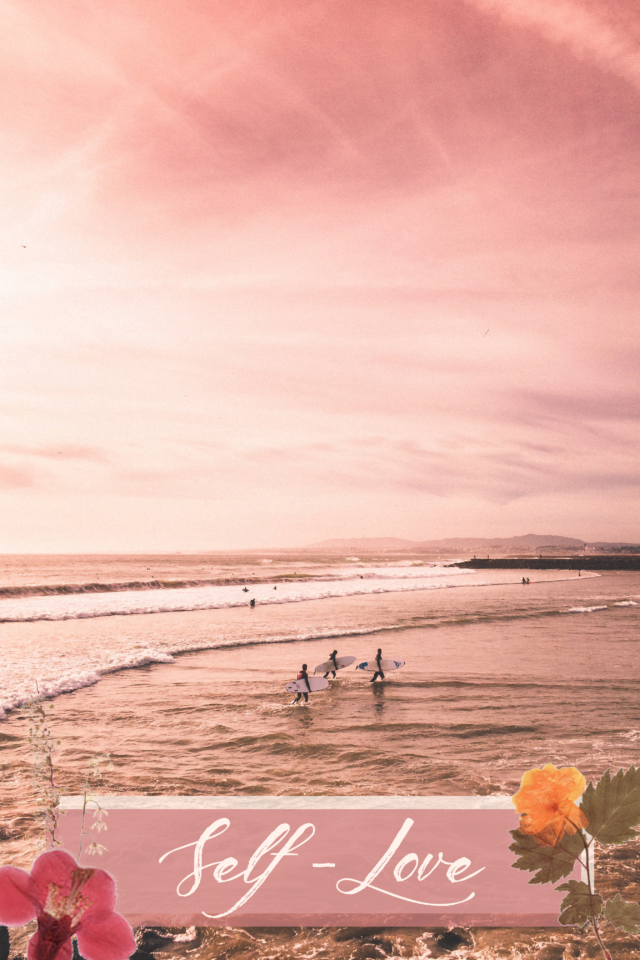
Self-Love: The Art of Infinite Self-Compassion
Happy Valentine’s Day to me.
It’s February and your local pharmacy’s front window uses more hearts than your 8-year old niece. It must be that time again. Valentine’s Day celebrations can be a hard one for single people who swear the money-making day doesn’t affect their lives but secretly wish they could offer some chocolates to a special someone. As nice as it is to celebrate love and our loved ones (I love receiving and eating chocolate), this year can be an opportunity to rethink this celebration and implement self-love first.
Curious to see what self-love means for the health and wellness crowd of 2019, I searched the Internet. Self-love is flourishing. We hear it during our yoga practices, we read it in blogs, we hear it in interviews. Self-love is everywhere.
My constant monologue, teeming with plans of perfection and regularity, is tiring.
Many websites seem to sell the idea of self-care instead of really talking about self-love. Sure, going to the gym, planning a massage or practicing meditation will helps to experience the world with more ease. Does it mean I will love myself more after yoga? Do I feel more connected with my true self after making a list of all positive aspects in my life? My personal experience is that I tend to be even harder on myself, only content when I check off all my goals. My constant monologue, teeming with plans of perfection and regularity, is tiring (and that’s only yoga!).
- So what is the alternative?
- What is self-love for me?
- Do I actually love myself?
After reading a few articles from the works of Kristin Neff, professor at the University of Texas in educational psychology, I decided to explore her definition of self-compassion instead. “Self-compassion involves treating yourself with the same kindness, concern and support you’d show to a good friend. When faced with difficult life struggles, or confronting personal mistakes, failures, and inadequacies, self-compassion responds with kindness rather than self-judgment, recognizing that imperfection is part of the shared human experience” (Neff and Dahm, 2015).
Self-compassion has 3 facets:
Mindfulness
Being honest with yourself without judgment is important. Honesty counts when you ask yourself the right questions and seek answers. Like you would do with your best friend, don’t hide anything from your heart. Instead of using self-punishing monologue, I switch to a caring conversation with myself. As my friends would ask with love and care, I ask myself everyday: How I am feeling? The answer and the way I respond to it is the most important part of the work. Listen to your answers. Feeling tired? I should rest more (which I’ve been doing so much lately). Feeling sad? What’s going on? Maybe I just need to cry a bit. Whatever your answer is, be caring and gentle with yourself.
Self-Kindness
So naturally, after an honest conversation with myself, I usually recognize my needs. Instead of being even harder on my self, I use self-love. This part is very personal and different every day. Some days I need chocolates; others, I need a break from sugar. Some nights I need to go out and dance; others, I need to be in bed by 7 p.m.
If I tell you to practice a self-massage, but you are tired and feel like crawling into bed, the massage becomes an act of self-hatred instead. Self-kindness is not self-indulgence! It is recognizing your needs with love and helping yourself achieve them. A third cup of coffee, for example, is not helpful and could just hide how much rest you really need.
Be Imperfectly, Fallibly Human
Guess what? We are imperfect beings living in an imperfect world, and this is a recipe for disaster. You are following social rules and are trying your best to be nice and kind with people. But then something happens (train delays, bad weather, etc.) and you lose your cool. The emotions are creeping up in your throat, stomach, jaws–you’re having what we call a bad day.
Emotions like anger, sadness or jealousy are present in your daily life– in everybody’s life–and that’s okay. They should not be suppressed, but rather felt and released. I remember a quote from the Dalai Lama about anger (quoting Buddha): “You will not be punished for your anger. You will be punished by your anger.” Don’t wear your emotions like pieces of clothing that are way too small, tight or uncomfortable. Be observant, accept your anger, and let go. Don’t punish yourself because you feel the way you feel.
Be your own advocate, and love yourself with compassion and trust. Happy Valentine’s Day to me.

Anne-Sophie is a French born adventurer who grew up skiing, dancing and cooking. She started making her own beauty products at age 17 and since then has been passionate about health, beauty and nature. She lives in New York City where she practices yoga and meditation and enjoys the eclectic restaurant scene of the city. As a teacher she is very curious and loves learning new skills.





